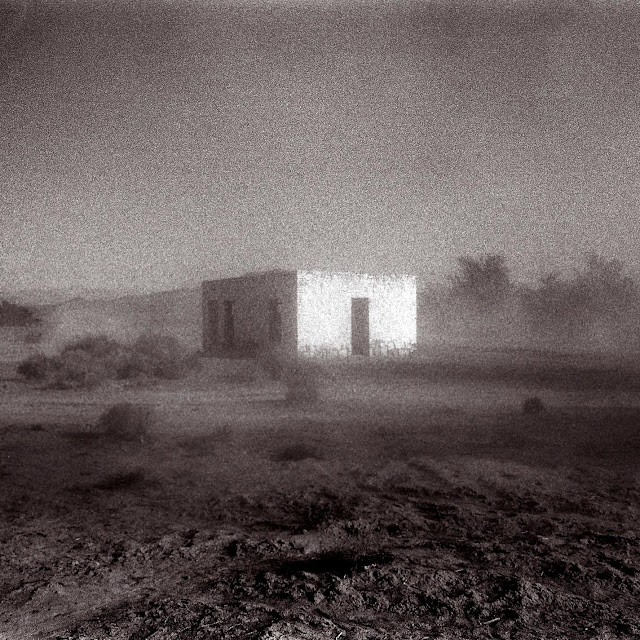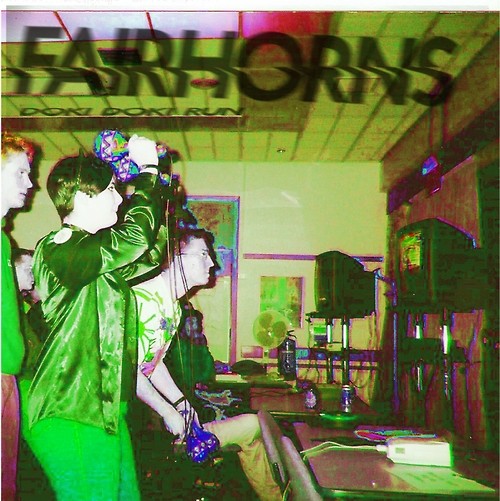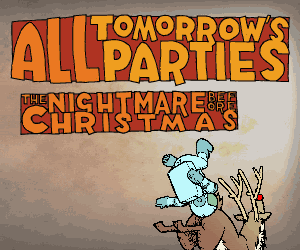
Backed by Sharon Jones' Brooklyn funk-soul brothers The Dap-Kings on all-pervasive, yet never invasive brass duties, opener Who is a triumph: a fizzling marriage of zanity, frazzled guitars, and Ethio-jazz toots redolent of Getatchew Mekuria and The Ex honking on a hookah with Mulatu Astatke. It's off-kilter; insistent; persistently wondrous in spite of its flittering time signatures and subtle key changes. A jubilant introduction, then but it's perhaps more artful than it is outwardly artsy – or at least it's nowhere near as awkward as such branding may have us believe. Yet that it be sat beside Weekend In The Dust – a kinda R'n'B diamond in the rough that's as though Damon Gough-scribed stuff for Chrome Hoof – ensures a juxtaposition of utmost abstraction.
Bolstered by frantic horns and propelled by Clark's staccato chirps it's quite evocative of brazen Chicago minstrels, Hypnotic Brass Ensemble, which is nothing but a quite good thing. Keeping things Illinoise (a record Clark perhaps far from coincidentally toured), Dinner For Two recalls several of Sufjan Stevens' innumerable takes on Chicago as a puff-chested fanfare alone accompanies Byrne's recount of an evening meal of "tiny kisses" swiftly blown apart as further abstraction ensues, tanks trundling over the suburban terrain outside. Byrne always was a provocative songsmith, and his powers here show no sign of dwindling just yet as you can practically taste the absentminded Harry's appetisers tiptoeing about the extremities of your tongue to the raw tune of handclaps and spangly trumpets. An indictment of our hectic, and with it haplessly lamentable existence, the pair croon in unison: "Something I should tell you/ But we are never alone/ There's something I should tell you/ And I've been waiting so long." The song then concludes with the inevitable proposal: that when the conflict beyond the curtains – a figment of the guests' imagination or otherwise – cease, the two pen in a dinner for two. The surrealist pomp and overriding grandiosity then comes to an abrupt standstill, leaving us with silence. A prerequisite, meditative pause of sorts; the direct equivalent of the pensive stillness kindled whenever you may find yourself stood before your dearest canvas.
Clark wrestles the initiative off the elder statesman of avant-garde on the jolty Ice Age – a warmly hostile track that could quite conceivably have come from Strange Mercy sessions were it not for its fluttering orchestrations, whilst I Am An Ape sounds more like Gershwin than Girlfriend Is Better, or indeed anything penned previously by either aforementioned. 20th century swing, it's a moody brood embellished with Byrne's teachings of human beauty ("I am an ape/ I stand and wait/ A masterpiece/ A hairy beast") and his discomfiting lyrics of "shoes and panties/ washed and folded." Eurgh.
Elsewhere, though, it's Clark who brings the most beguiling quirk: the ebullient bob to The Forest Awakes; the corrosive flashes of Lightning enlighten with rhythmic brilliance; the oddly straight-up, innate positivity to Optimist. Thus they're at their best when Clark performs prominent, bringing her idiosyncratic praxis with her and, as such, the electronically infused pulsations of Lazarus and the clunky chug of I Should Watch TV never quite compute. Similarly, the former piece suffers from a lack of defined involvement from The Dap-Kings although The One Who Broke Your Heart overcooks this particular element, its snake charmer riffage disenchanting as much as Byrne's strained lyricisms of heaven and hell.
As with all artwork, Love This Giant will, rather appositely, divide opinion. At times overly ostentatious; at others irreproachably excellent, it's a collagist's dream with their four hands oft improvising in synchronicity.
























